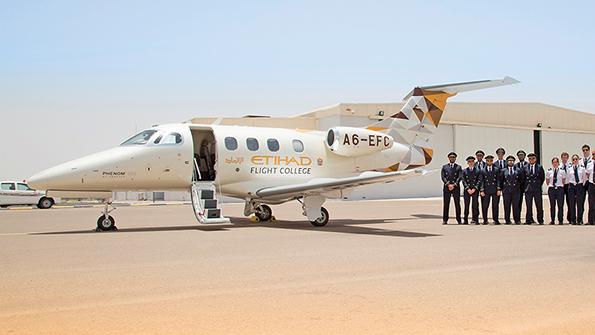
It sometimes can take a crisis to solve a crisis. And it may be that among the few silver linings in the billowing dark clouds of the COVID-19 pandemic is an end to the chronic global shortage of pilots as airlines park their planes.
But there may be opportunities for business aviation, for providers of training services and systems, and also some pilots.
As commercial airlines lay off cockpit crews, there is suddenly a large number of experienced pilots looking for work. Just months ago Boeing was forecasting a global need for 804,000 commercial pilots over the next 20 years, and hiring bonuses had become commonplace.
Now the situation has reversed. Some surplus pilots will find opportunities to retrain for new types; but any airline pilot hoping to transition to business aviation will need to meet the sector’s subtly but substantially different demands.
“It’s not an average pilot who can fly private aviation,” says PrivateFly CEO Adam Twidell. “Not only do you need your piloting skills, but you need great customer-service skills. And not everything’s delivered to you on a plate when you fly a private jet. You’re constantly having to solve problems throughout your day. It’s a very rewarding and challenging career for pilots. With the layoffs in airlines, I think it’s a great opportunity for private aviation to recruit some really good talent into the industry.”
“I don’t think the pilot shortage is over, but a pressure valve has certainly been released for a few years,” says Sheryl Barden, president and CEO of Aviation Personnel International of San Francisco. However, hiring cheaply might be false economy. “I’ve been asked if pilots can now be had at bargain prices. Some can. But the thing is, they won’t stay” as passenger traffic recovers and the projected wave of retirements of senior airline pilots begins.
Once armed with the relevant type certificates and customer-facing skills, a suitable pilot certainly will find an eager embrace from business-jet operators.
“We’re always looking for quality people,” says VistaJet Chief Operating Officer Ian Moore. “If you get good quality people and you can maintain the quality of staff you have already, then it’s only going to be a positive.”
One challenge for pilots will be the significant downward pressure on pay, as supply exceeds demand for the first time in years. This is already being felt.
FAI, the Nuremberg, Germany-headquartered aviation services company, notes there has always been a steady stream of new pilots keen to amass flying hours. Yet rather than anticipating recruitment difficulties as the ab-initio pilot stream likely reduces to a trickle, the company already is seeing increased interest from experienced pilots.
“We’ve received several job applications during recent weeks, even from pilots who left the company not in a good mood,” reports FAI’s director of sales and marketing, Volker Lemke. “Obviously the pressure on them due to the market situation seems to be very high. In addition, I’m sure that some competitors will not survive the crisis, so we will have a future pool of experienced pilots desperately looking for a new job. This is always a good position for an employer.”
Meanwhile, the simulator and training industry could be an unexpected beneficiary of the pilot surplus.
“There will be new type ratings and recurrent trainings,” explains Bert Buyle, founder and CEO of Belgian training device-provider Euramec. “For all pilots who have a license but cannot immediately find a job, there’s the problem of keeping current and one option for doing that is simulators. Demand for simulators is still going to be there, but if you’re doing simulators only for the ab-initio part of the market then you have a problem.”
The ab-initio market will return, Buyle believes, but companies will need time and money to bridge the gap. And operators in all sectors will need to bear in mind that the flow of new pilots through the training pipeline is likely to become patchy in the medium term.
“It’s not a problem to start investing now in pilot education, because in two years I’m quite convinced the market will return to normal and we’ll need those pilots,” Buyle says. “But we will see a delay, which might be from six months to a year, where nothing much is happening.”
